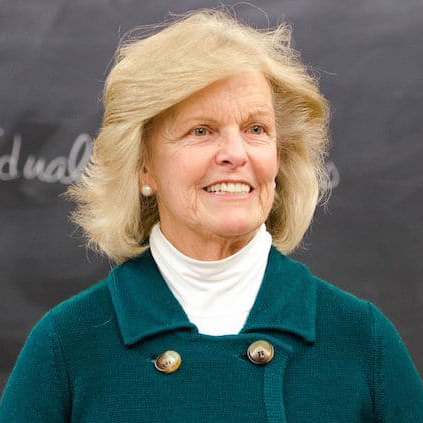In 1930, Margaret Sanger’s Birth Control Clinical Research Bureau allied with the Urban League to bring birth control services to the women of Harlem. By 1939, Sanger had raised thousands of dollars to support an expansion of the initiative she named “The Negro Project.” Targeted toward reducing an African-American population described in Sanger’s June, 1932 edition of Birth Control Review as “breeding carelessly and disastrously,” these early birth control clinics seem to have provided a model for New York City’s School Based Health Centers.
Today, New York City’s public school students—underage and without parental knowledge—are given access to birth control pills, Depo-Provera injections, and the insertion of plastic IUDs to prevent pregnancy. In an analysis of the records of 40 school based health centers in New York City—most of them in schools with large minority populations, the New York Post revealed that about 22,400 students sought reproductive care from January, 2009 through 2012.
In addition to these routine contraceptives, the City’s schools are providing students with Plan-B, the “morning-after pill” to prevent pregnancy. The Post reports that “handouts of the morning-after pill to sexually active students have skyrocketed” from 5,039 doses given to teenage students during the 2009-10 school year, to 12,721 doses given in 2011-12. Under New York State law, minors can obtain reproductive services without their parent’s permission.
Orthodox. Faithful. Free.
Sign up to get Crisis articles delivered to your inbox daily
Like Sanger’s early alliances with the City, New York’s Bureau of Maternal, Infant and Reproductive Health launched the current contraceptive project with a grant from the Fund for Public Health in New York. According to an internal report published by the City, and obtained by a Freedom of Information Law request by the Post, New York City spent $2.7 million on the centers this fiscal year. While the report lauds the reduction in teen pregnancies in the city, it seems that there are some parents, like Mona Davids, president of the NYC Parents Union, who have been critical of the program. According to the Post, Davids, an African-American, noted that most school based health centers are in poor neighborhoods: “This was population control on blacks and Latinos without our knowledge.”
Davids is correct. The National Assembly on School Based Health Care Census report documents that nationally, 70% of the student body in schools with school based health centers are members of minority groups. These groups have long been targeted for all reproductive services—especially abortion. According to the Guttmacher Institute, the abortion rate for black women is almost five times that for white women.
The Reverend Clenard Childress, president of the largest African American evangelical pro-life group in the country identifies abortion providers as marketing reproductive services directly to black women. He blames the availability of these services within the poor urban communities—claiming that their presence in the minority neighborhoods decrease the stigma of such services by signaling social approval for these services—what economists call “reducing the psychic costs.”
The reality is that when an abortion clinic is located in the neighborhood, residents are more likely to see it as just another neighborhood service—like dollar stores and nail salons. Many children grow up in urban neighborhoods seeing abortion clinics on their street corners as they walk to school. Now, they are seeing reproductive services—including the morning after pill—dispensed at their own schools.
The Sanger legacy of encouraging population control for blacks to benefit society continues—even within academia. Professors John Donohue and Steven Levitt of the University of California at Berkeley provided a powerful economic argument in favor of abortion in 1999 that relied on the same stereotypes first promoted by the eugenicists of the Sanger era. In a paper published in the U.C. Berkeley Law and Economics Working Paper Series (No. 2000-18) entitled “The Impact of Legalized Abortion on Crime,” Donohue and Levitt used elaborate mathematical models to marshal evidence that legalized abortion has contributed to crime reductions. They concluded that more abortions by African American women result in fewer homicides for society, and warn that any restrictions on abortion will result in increased crime because “homicide rates of black youth are roughly nine times higher than those of white youths.”
It is likely that these abortion rates for African Americans will continue to rise. Now, New York’s Governor Andrew Cuomo—a Catholic who was described in a February 19th column in The New York Times by Ross Douthat as a “functionally post-Catholic creature of the Bloombergist center-left”—has recently moved to reduce any of the state’s restrictions on late-term abortions. Expanding access to late term abortion when the woman’s health is at stake rather than just, as the current law states, when her life is in danger, Cuomo continues to defy Catholic teachings in his quest to increase the number of late-term abortions in New York.
In an interview on TALK 1300 AM Radio, a local radio station in Albany, Dennis Poust, Director of Communications for the New York State Catholic Conference decried Cuomo’s decision to expand access to late term abortion. But, Catholic parents of children in New York City public schools have no choice in their children’s access to abortion and contraception. City officials seem proud that their teen pregnancy rates are declining. But, it is at a high cost for poor families. It is likely that Ms. Davids and the NYC Parents Union will continue to ask questions about a school-based program that appears to replicate the eugenics project implemented by Margaret Sanger back in the 1930s.
